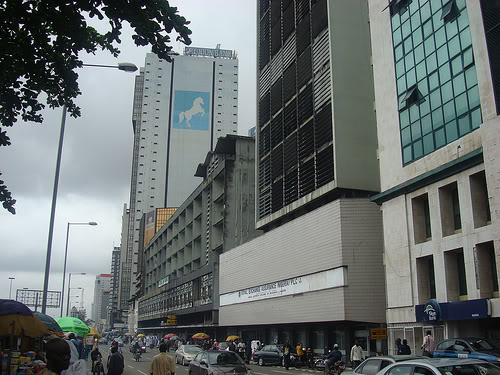Activities in the manufacturing and non-manufacturing sector softened in September, as the composite PMI grew slower at 57.85 points (August: 58.35). As a result of the impact of slower growth in production level (-2.0 points), new export orders (-9.0 points), and inventory levels (-6.0 points), which had a negative pass-through to the manufacturing PMI (-2.0 points to 57.7 index point). The border closure in August may have accounted the upward pressure.

Looking ahead, it is expected that festive induced spending may improve business performance and sentiment in the last quarter of the year, with the most impact expected in November and December.
According to the business confidence survey by CBN, business sentiments in September waned significantly. For evidence, the overall business outlook on the macroeconomy dipped by -1.9 points to 26.7 index points – the weakest since January 2019.
Similarly, business confidence across all sectors declined, as confidence across the Industrial (-1.9), Construction (-5.0), Trade (-2.3) and Services (-2.7) sectors all declined month-on-month. In our view, the weakened optimism is due to challenges hovering around insufficient power supply, high-interest rates, an unfavourable economic climate, unclear economic laws, and an unfavourable political climate.
For the rest of the year, despite the highlighted challenges, we expect the CBN’s pursuit of higher credit extension to the private sector to spur improved business activities.
Equities
Sentiments remained weak in the Nigerian Capital Market, as the All-Share Index closed marginally lower week-on-week (-0.1% to 27,675.04) following sell-offs of bellwether stocks including MTNN (-2.9%) and DANGCEM (-2.8%).

Consequently, the MTD and YTD return of the market moderated to 0.5% and 11.9% respectively. Analysing by sectors, the Oil & Gas (+11.6%), Consumer Goods (+5.0%), and Insurance (+3.0%) indices recorded gains, while the Industrial Goods (-1.8%) and Banking (-1.6%) indices closed in the red.
Over the coming week, we expect the market to remain pressured given global risk-off sentiments and weak domestic participation. Nonetheless, we note that valuations remain attractive while price deterioration has resulted in expected dividend yields on some stocks rising significantly to levels on par with yields on Treasury bills. Hence, we advise that long-term investors consider appropriately timed investments.
Money market
In line with our expectations, the overnight (OVN) rate moderated significantly (-8.79 ppts to 9.29%) during the week as the liquidity in the system improved. A spike was expected at the start of the week, however, the rate trended downwards over the final few days of the week, the downtrend started on the first trading day before moderating to settle at 7.4% relative to 18.1% at the end of the prior week.

On the first trading day, the rate settled 13.4ppts lower at 4.7% as maturities flowed into the system. Similarly, the rate settled pared by 0.1ppts apiece over the next two trading days, before settling at 4.5% on Wednesday. However, on the penultimate trading day of the week, the rate increased by 2.93ppts at 7.4% as PMA Treasury bond and OMO auctions strained system liquidity.
In the coming week, PMA and OMO maturities worth NGN596.34 billion are expected to hit the system on the 3rd of October (PMA – NGN123.97 billion; OMO – NGN472.37 billion) Consequently, we expect the OVN rate to settle lower week on week.
Foreign exchange
Following unrelenting naira assets sell-offs by offshore investors, Nigeria’s FX reserves declined by USD250.00 million WTD to USD42.11 billion (September 25, 2019) – a 10-month low. Meanwhile, despite the absence of CBN’s weekly FX interventions, the naira appreciated by 0.10% w/w to NGN362.02/USD at the I&E window but closed flat at NGN360.00/USD at the parallel market.
Meanwhile, total turnover at the I&E window increased marginally by 5.56% WTD to USD725.71 million, with trades executed within the NGN357.50-364.00/USD band. In the Forwards market, the naira contracted on the 1-month (-0.1% to NGN365.90/USD) and 3-month (-0.1% to NGN372.93/USD) contracts. Conversely, the 6- month (-0.1% to 383.76/USD) and 1-year (-0.1% to NGN410.86/USD) contracts recorded appreciations.

Global Economy
Global equities markets, across the, recorded mixed performances, albeit with a bearish tilt following the commencement of an impeachment inquiry into the US president –, which stoked fears of heightened political uncertainty and dented optimism about an easing of U.S.-China trade tensions.
This was due to concerns about U.S. political developments –Consequently, US (DJIA: -0.2%; S&P: -0.5%) and Asian (CSI 300: -2.1%; Nikkei: -0.9%) equities markets were on track to close the week in negative territory. European (FTSE: +1.0%, Euro Stoxx: -0.8%) indices were also mixed, as lingering fears of a no-deal ‘Brexit’ pressured performances.
Also, sentiments in Emerging Markets (MSCI EM: -1.0%) remained weak, following losses across China and South Korea (-2.0%). However, the Frontier Markets (MSCI FM: +1.3%) index looked set to record its first weekly gain in over a month, following gains across Middle & East & North African indices – Kuwait (+3.5%), Morocco (+0.1%), and Bahrain (+2.1%).
Source: Cordros Securities















